Live in Washington DC, Lizzie No and Evil Shine
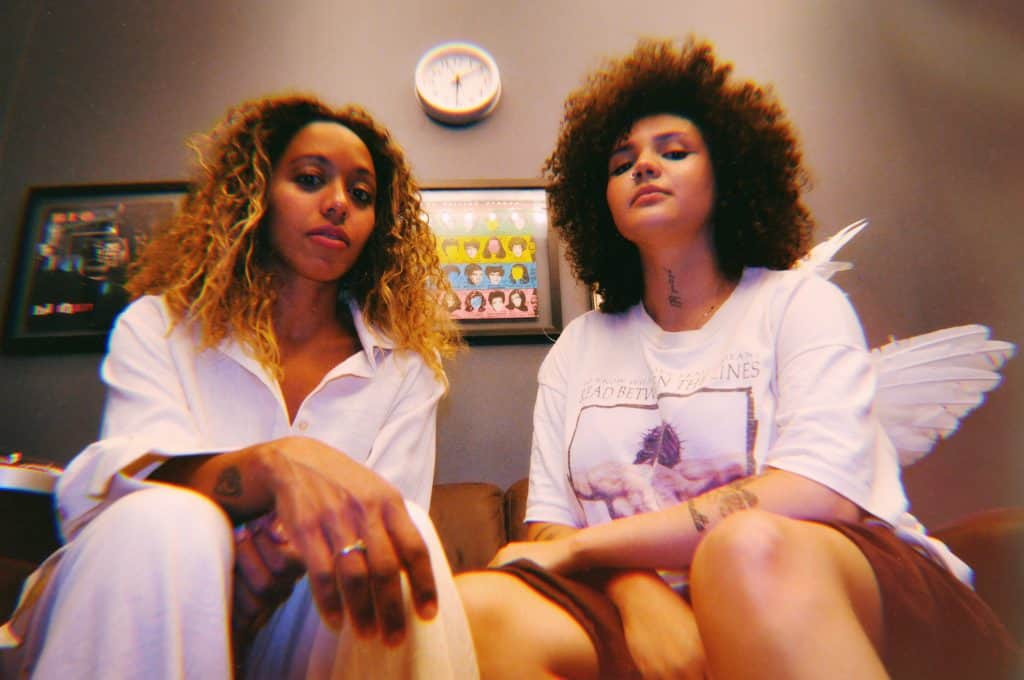
by Annie Parnell, Managing Editor
The up-close-and-personal space of Pearl Street Warehouse — an all-seated Washington, DC venue with a full menu and bar — felt both intimate and electric on the night of October 6th. With the performances of Lizzie No and Evil, the atmosphere was perfect for a night of communion and change.
DMV-based Evil opened the evening with a stripped-down set of their dreamy, bedroom-pop influenced country tracks, backed solely by their own ethereal banjo and guitarist Kwesi Lee.
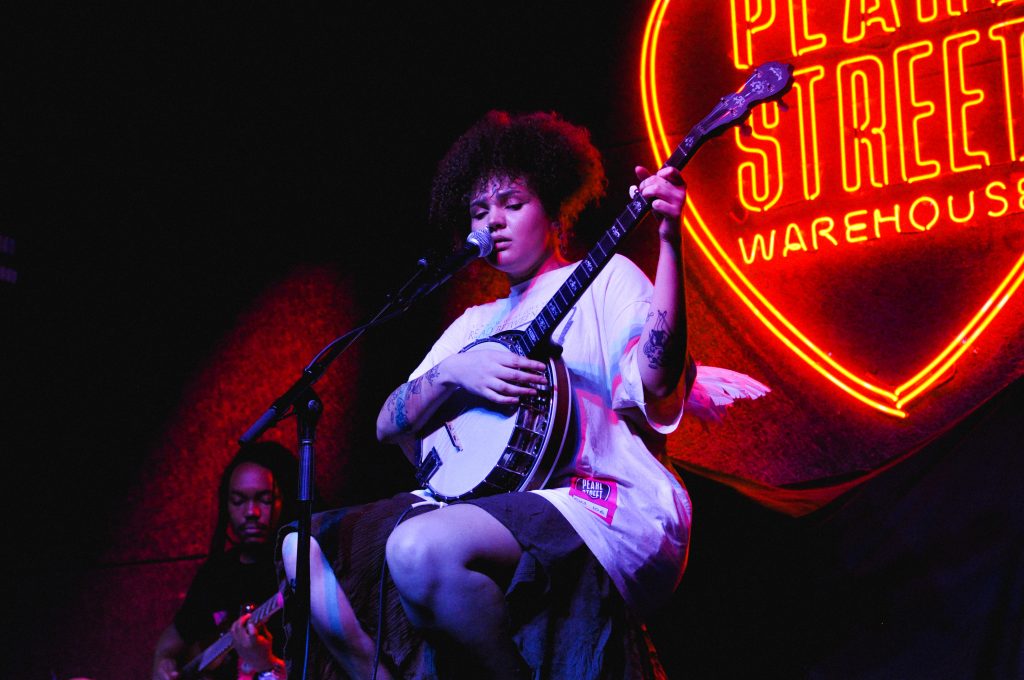
Appearing onstage in angel wings, they began with “Mice or Men,” a 2018 single that, like much of Evil’s work, strikes a heartstrings chord of knowing the pain that can come with love but asking for it anyway. Their recent Adventure Time feature “Slow Dance” encapsulates this feeling, and as Evil explained at Pearl Street, it was even directly inspired by it. In their words, the song is about “being gay and someone not liking you” — specifically, someone who Evil had approached with the lyrics while putting the song together, who sadly didn’t pick up the hint.
“To live in this world, especially as a queer Black artist, is to encounter tragedy, trauma and evil,” Evil has written of their stage mononym. Queer Black artists created modern-day country music, but are rarely given credit for it, and are consistently pushed to the side. The reclamation of the name of “evil,” in addition to what Evil calls the process of “digesting and transmuting EVIL in order to LIVE,” is an act of radical ownership and vulnerability that comes through consistently in their music.
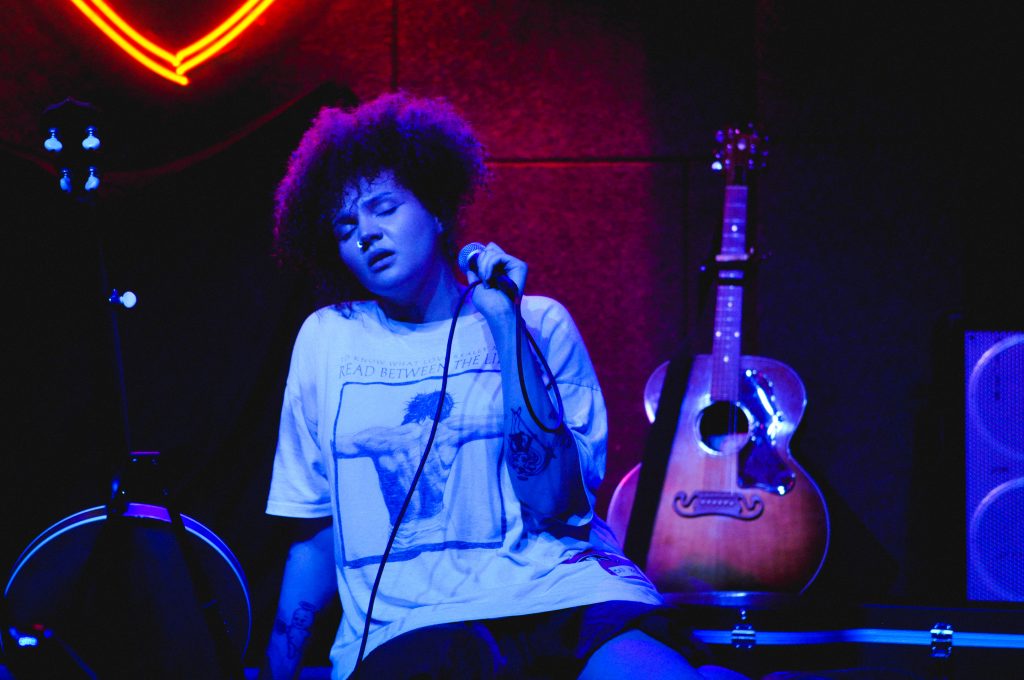
“Broken Wing,” for instance, features a confession that they “could seek vengeance” on a person — or a world? — who has wronged them, but casts an eye beyond the self, asking instead “who am I, tragically lost?”. This sense of connection with the world-at-large was physically embodied in Wednesday’s version of “Broken Wing” when Evil sat down on the stage itself during the song: whispering “hi” to the audience, they explained later that they felt like they should sit because everyone else was seated.
After a gentle farewell and two covers that reimagined Dua Lipa’s “Don’t Start Now” and Fleetwood Mac’s “Landslide” in their style, Evil cleared the stage to make way for Lizzie No, a Brooklyn-based folk musician who has made waves for her detail-rich songwriting and talents on the guitar and harp.
No evokes both the singer-songwriter folk of Joni Mitchell and the wounded Americana of Jason Isbell. Bedecked that night in an all-white linen ensemble, she eschewed an emotionally-unavailable former lover with the tender takedown “Outlaws,” which recently won American Songwriter’s Lyric Contest for forthright literary couplets like “from across the table you said I was like a train / I said, “there’s nothing to me now but aches and pains.”
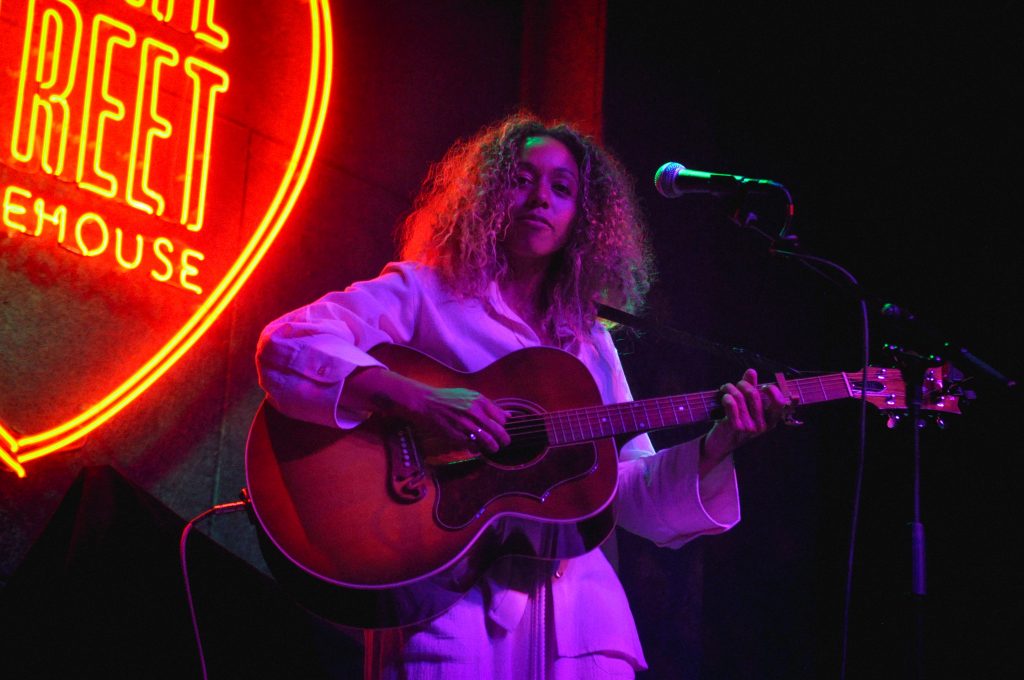
Though she explained that she typically doesn’t play requests, a cover of Emmylou Harris’ “Easy From Now On” fit perfectly among No’s own songs of heartache and healing. These included the long-distance tearjerker “Monuments” and whimsical track “The Heartbreak Store,” which she explained that evening was based on a dream detailing a “pawn shop of the spirit world” that evokes the poetic project of Zagreb’s Museum of Broken Relationships.
Like Evil, Lizzie No’s music also strikes a keen balance between the personal and political. On stage, she mused about the ways in which the two are intertwined for Black and queer country artists, as well as the progress currently being made by necessary organizations like The Black Opry, whose recent Black Opry Revue in New York brought together a collective of rising Black country stars. In addition, though, her heartfelt music commented on the distance there is still left to travel in order to achieve real change. “Killing Season,” a haunting reflection that evokes traditional murder ballads, for instance, was borne from processing the grief and fear of constantly hearing about people of color being murdered on the news.
Later in the night, No also remarked on the surreality of gentrification — quipping “even our ‘liberal’ cities don’t feel like they belong to us” — and the discomfort of being asked by media outlets to talk about her trauma in the wake of the killing of George Floyd. “Sundown,” a benefit track for Black Lives Matter, explores this pain with her penchant sense of delicacy and poignancy: “I saw a good man killed on TV / He reached for his wallet and he fell asleep / The newspaper said that he had a gun / But the whole world knows where the fear comes from.”
“I am interested in the world we’re making,” Lizzie No said to summarize these thoughts towards the end of her set. Speaking to both the urgency of our current moment and the potential on the horizon, this succinct phrase captured some of the magic at Pearl Street Warehouse that night: an intimate evening of music from two of the brightest rising stars in folk and country, laced with a compelling sense of uplift.
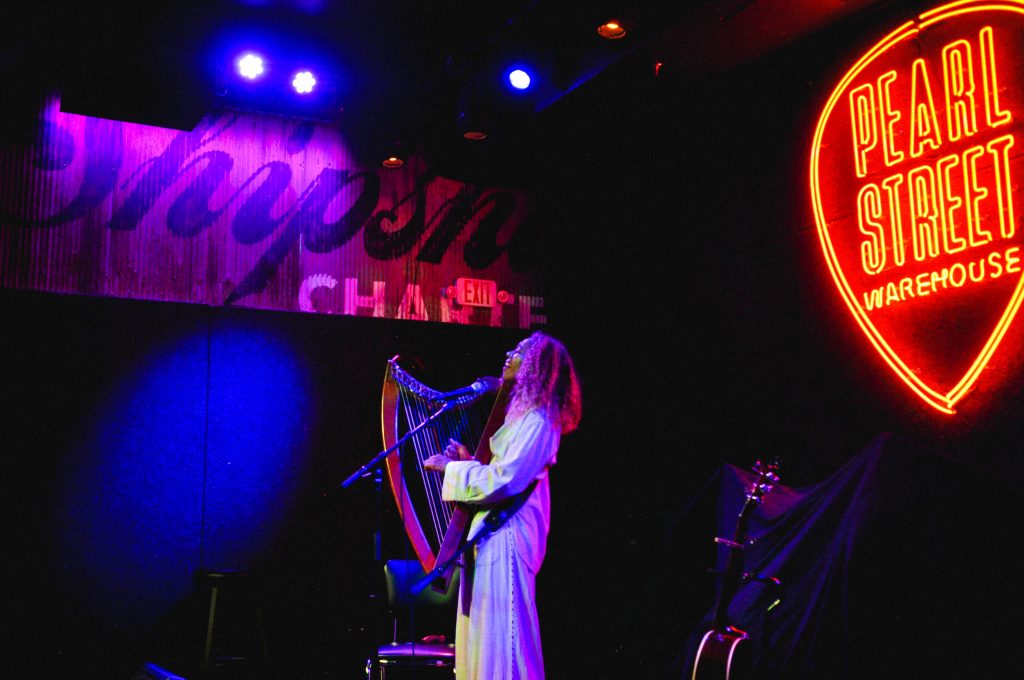
Annie Parnell is the Managing Editor of Country Queer and cohost of the radio show Cowboy Church. She also runs the newsletter Tugboat. Her writing has been featured in PopMatters, The Boot, Taste of Country, We Are The Mutants, and the Virginia Literary Review.